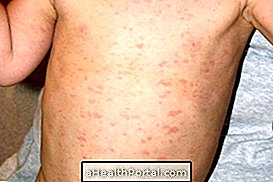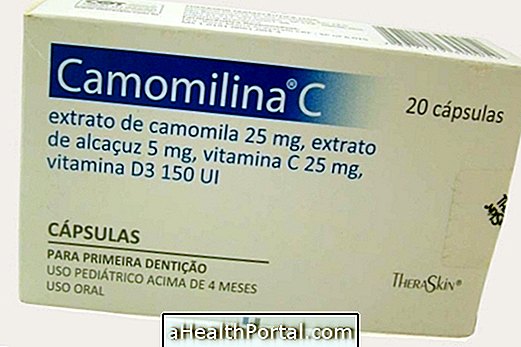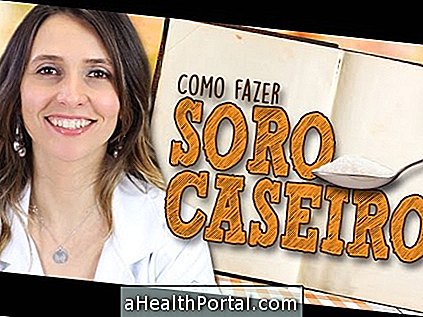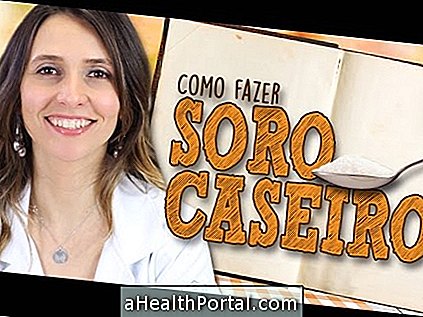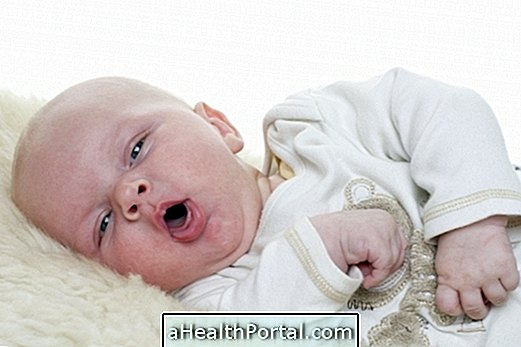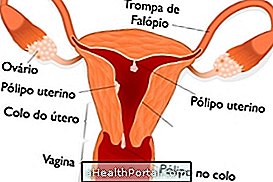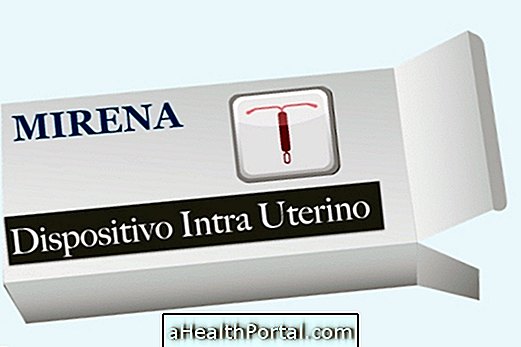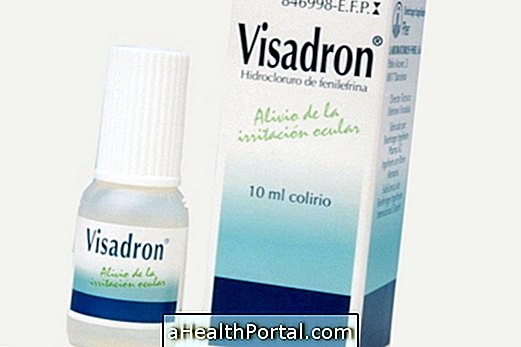In case of throat infection in the baby the pediatrician may indicate the use of throat remedies such as Paracetamol, Ibuprofen, and in some cases, antibiotics like Amoxicillin.
However, parents can help with the treatment by taking some simple home-made measures such as bathing the baby with warm water to fluidize the secretions and give orange juice, which is rich in vitamin C, to boost the body's defenses.
Generally, sore throat is caused by some virus due to flu, and in healthy children, this condition stays for 5 to 7 days.
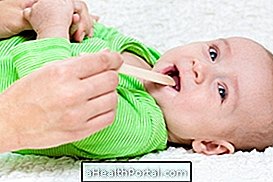

Symptoms of sore throat in the baby
The baby with a sore throat usually refuses to eat or drink, cries when he swallows or eats and has secretions or coughing.
In the baby under 1 year there may also be:
- Restlessness, easy crying, refusal to eat, vomiting, sleep disturbance, and difficulty breathing due to catarrh in the nose.
In older children:
For children older than 1 year, it is easier to identify sore throats, as they often complain of pain in the throat or neck when swallowing, drinking or eating something. Other symptoms that may be present are:
- Headache, pain throughout the body and chills, catarrh, and redness of the throat and inside the ears, fever, nausea, stomach pain and pus in the throat. Certain viruses can also cause diarrhea.
What To Do To Cure Baby's Neck Pain
To cure the baby's neck pain, some home measures that may help relieve pain and inflammation of the throat include:
1. General care
- Give the baby a warm bath by closing the door and bathroom window: the water vapor that the baby will inhale fluidises the secretions, helping to clear the throat;
- Wash the child's nose with saline if there are secretions: remove secretions from the throat, helping to clear it;
- Do not let the child walk barefoot and wrap it when leaving the house: the sudden difference in temperature can make the sore throat worse;
- Stay with the baby or child at home if there is a fever: do not take the baby to the day care or the child to school until the fever passes. Here's what to do to get baby fever down.
- Wash hands often to avoid contamination of others.


2. When giving medicines
Inflamed sore throats should only be used under the advice of a pediatrician. Viruses caused by viruses do not always need medication because within 7 days the body reacts, with symptoms improving. However, your pediatrician may prescribe:
- Analgesics such as Paracetamol in the form of syrup;
- Anti-inflammatories such as Ibuprofen or Acetominofene in the form of syrup;
- Nasal decongestant like Neosor or Sorine infant, in the form of drops or spray for larger children.
Antibiotics are not recommended if the infection is not caused by bacteria. Cough remedies and antihistamines are also not advised because they are not effective in young children and have side effects.
The flu vaccine is particularly indicated for children who have asthma, chronic cardiopulmonary disease, kidney disease, HIV + and in children who need to take aspirin daily. In healthy children, you should talk to your pediatrician first.
3. Caring for food
- Give soft foods to the baby from 6 months of age: they are easier to swallow, reducing discomfort and sore throat. Examples of foods: warm soup or broths, fruit puree or yogurts;
- Give plenty of water, teas or natural juices to the baby: it helps to fluidize the secretions and clear the throat. See the best home remedies for sore throat.
- Avoid giving too hot or cold foods to your child: too hot or cold foods make sore throats worse;
- Give orange juice to the baby: orange has vitamin C, which increases the body's defenses;
- Give honey to the child over 1 year: helps to hydrate the throat, relieving the discomfort.
Sore throats usually go away within a week, but if your child takes the medicines prescribed by your pediatrician and these home remedies are taken, they may feel better in about 3 to 4 days.
Warning signs to return to pediatrician
After the baby and child have already been seen by the pediatrician, treatment should be started as soon as possible. However, it is advised to return to your pediatrician if you notice the following symptoms: Difficulty breathing, high fever, tiredness and frequent drowsiness, pus in the throat, complaint of ear pain or persistent cough for more than 10 days.

